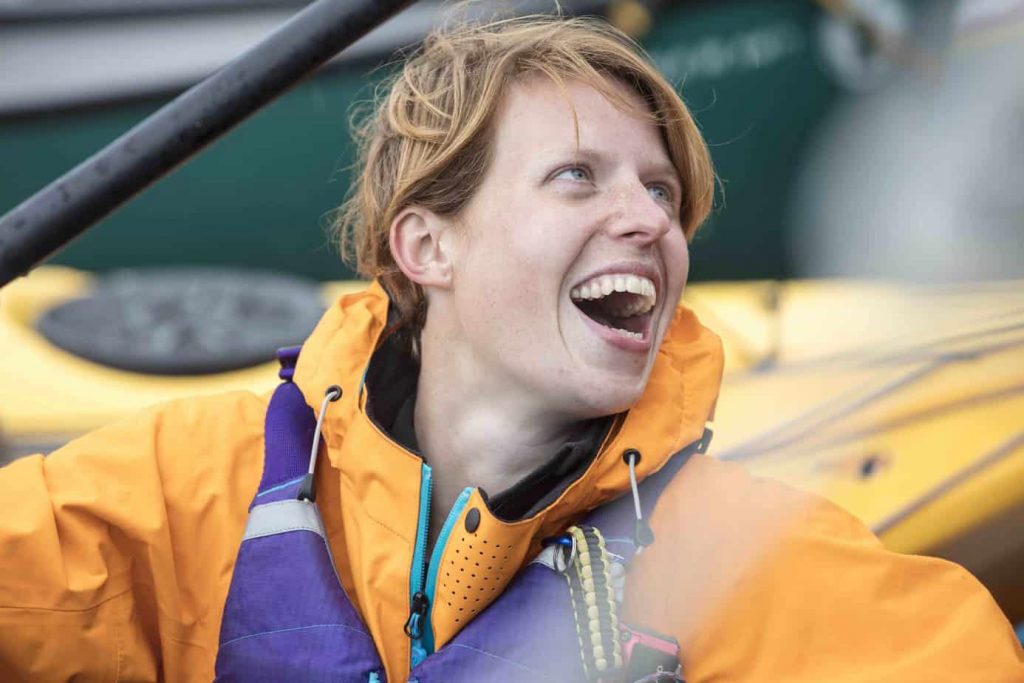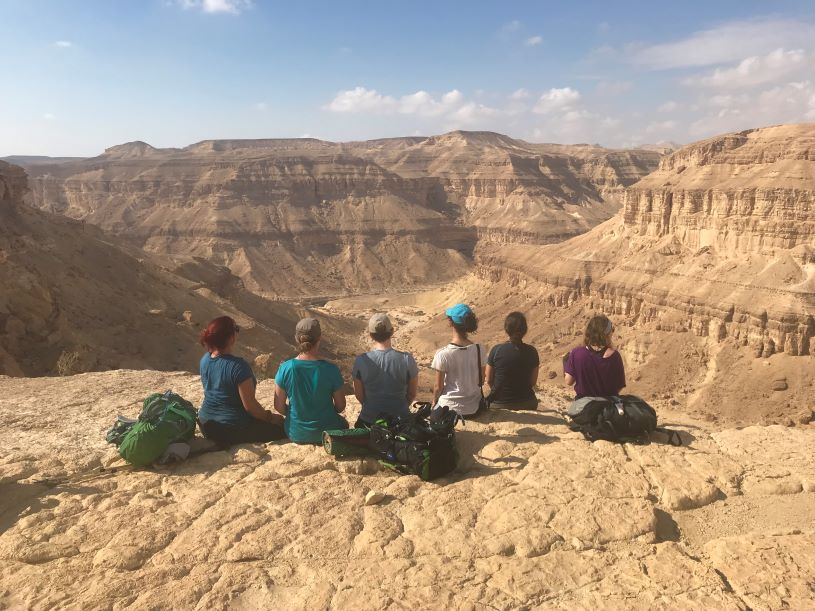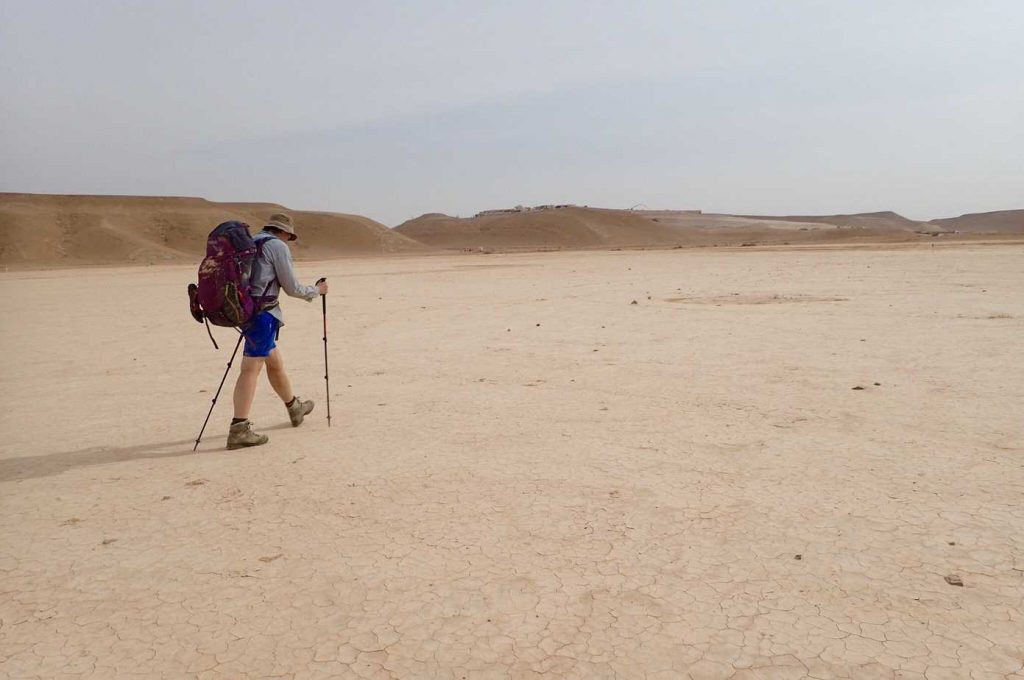When Bex Band won a Next Challenge Grant to ride a kick-scooter 150 miles around London, it was her first big adventure.
In her application for the 2016 grant, she wrote:
“Myself and my husband have never done anything like this before. We are very ordinary – I am a secondary school teacher and my husband is an account manager. We have always wanted to be more adventurous and decided this year that we would take the leap and do something different and exciting.”
Since that trip, she has hiked the length of Israel and kayaked the width of the UK; been nominated for The Great Outdoors personality of the year and won the Next Generation Award; and founded the Love Her Wild women’s adventure community, which now has over 6,000 members.
I am frequently contacted by people that want to become “adventurers” but don’t know where to start. In Bex, we have an example of someone who had “never done anything like this before” just three years ago, but has now established herself as a central part of the UK adventure community with several big trips under her belt.
Today she has kindly agreed to an interview to tell us a little more about how she got to where she is today.

Bex, you said that you’d never done any big adventures before scooting the London Loop and walking across Israel. What made you want to do such things? And what gave you the impetus and confidence to try?
I think I was just very fed up with my life and in desperate need of a change. I was looking for something to shake up the routine and adventure was it. At the time I didn’t have any confidence in my abilities. I was sure I had bitten off more than I could chew and certainly anything but adventure material. It was a scary step. But each step I did take built up my self-belief just that little bit more.
Before I knew it I had hiked across a country and was standing on stage inspiring others to go on their own adventures!
The Next Challenge Grant that you received was not a huge sum. It was only £100. What difference did this relatively small grant make?
That pretty much paid for the adventure! It was on a school holiday – I was teaching at the time – and The Next Challenge Grant meant I had no excuses not to make that first adventure happen. It also made me accountable (no turning back once you’d posted it all over the web!!) and gave me that little bit of support needed that if someone else believes I can make this happen, then I should too.
‘Scoot the Loop’ was your first adventure but now, three years later, you have a pretty high profile in the adventure world. Could you tell me about what the next steps were, after Scoot the Loop, which led you to where you are today?
‘High profile’….thanks Tim :)
I certainly don’t feel that way. That feeling of Imposter Syndrome never really goes away!
After Scoot the Loop I really couldn’t stay in my job much longer so decided to take a sabbatical. Hiking the length of Israel seemed like a huge and impossible adventure that I just couldn’t get out of my head. The entire hike cost just £500 to do (including flights) and was completely life changing.
I’d been keeping a blog during the adventure and that really started to take off. More opportunities started coming my way from talks, sponsored adventures to writing articles. Then I had the idea for launching Love Her Wild – a women’s adventure community.
Rather than returning to work, I stayed in really cheap countries for a few months and built up my profile and community online. Before I knew it I had a career as an ‘adventurer’ (I use that term lightly as really I mostly make a career for myself through writing, talking and organising adventures).
You refer to yourself as an ‘ordinary adventurer’. What do you mean by this? And why is it important to you?
Even though I lead a very exciting and un-ordinary life now, I still feel very ordinary. I grew up in Basingstoke (a town nicknamed ’the concrete jungle’) and went to a nearby comprehensive. I struggled with Dyslexia so my grades were never great and for most of my life I was overweight so never succeeded in any sports…I was never a high-achiever.
I will never be a super fit athletic type breaking records. But I’ve found adventure in my own way and hope to therefore inspire those who, like me, feel too ordinary to be an adventurer.
You’ve written about the high proportion of adventurers that are white, male and privileged. What difference do you think your perspective makes?
It’s something I noticed from day 1! Although there are big changes happening, there’s still a long way to go. You just need to look at adventure events, exposure in magazines and sponsorship deals to see that the adventure world is far from diverse. The only noticeable sexism I ever experienced was while outdoors and on adventure courses. That’s not right!
I’d love to see companies doing more to reach a more diverse audience. And also adventurers acknowledging their privileged. Spreading messages that ‘anyone can do this’ when you come from a very privileged position can be a massive turn off.
I’ve definitely ruffled a few feathers online for raising this topic and speaking out against messages that I think aren’t right. But I do think it’s important that these issues are approached otherwise the changes won’t happen.
Given the above, which adventurers do inspire you and how?
There are so many! I love Pip Stewart because she’s so honest about everything and she really cares about helping those less fortunate. Squash Falconer and Catherine Edsell inspire me by showing that motherhood and adventure can go together (albeit with a lot of changes)….this is something as a woman that I think about. Lyndsey Cole has a really raw way of sharing her adventures and she always makes me smile. Al Humphreys’ Microadventures is such a great concept as well. They teach you all the skills you need to then go on and do bigger adventures – from planning to wild camping.
You were a secondary school teacher when you applied for my grant in 2016. What made you want to forge a career out of adventuring, rather than just having adventures for your own sake in your holidays?
Adventuring as a career is very different to just adventuring. Really I like both! Adventures involve getting outdoors, setting challenging and moving your body. My adventure career involves marketing, writing, speaking and managing an online presence. I love being my own boss and the creativity and flexibility it brings and it has the added bonus that it supports my adventure pursuits as I now often get sponsored adventure opportunities which I wouldn’t otherwise be able to afford to do.
For anyone thinking of adventuring as a career I’d suggest looking at the uncertainty that comes with being your own boss in this way as that would be a big turnoff for some. I’ve never been suited to 9-5 living though so the pros outweigh the cons.

Love Her Wild is very much about helping other people pursue adventures. What led you down this road?
I get so much satisfaction from helping others. Volunteering and charity work has always been a big part of my life. I really believe that getting people on adventures helps them realise their potential and also reconnects people to our natural world (which we desperately need if we are going to save our natural spaces). It feels great to feel like I can make a difference in my own way and that’s very satisfying.
I always say that the magic formula to life is finding what you love then finding a way to then turn that passion into helping others.
To my continuing delight, you regularly publish a breakdown of your earnings from different sources. I think it’s really good to show how much you earn so that aspiring adventurers can see what they might expect (my figures are here)
Your sources of income include leading expeditions, organising events and corporate sponsorship (this is particularly impressive by the way. When people ask me about this, I tell them it almost never happens!). I’m really interested in your use of Patreon, where people can pay a monthly membership fee in exchange for premium services/content.
Can you tell me what led you to try this and how it’s gone so far?
Thank you! I make a big conscious effort to remain transparent. I remember when I was starting out and was looking at all the other professional adventurers wishing I knew how they actually made money!
Patreon has been a game changer. I’ve now got over 100 Patreons, which amazes me every day.
A lot of the work I do for Love Her Wild is just for the community including the mentoring program, running free meet-ups and adventures, providing free or subsidised spaces on our trips for women in need and also the online Facebook group. All these take a lot of time but don’t make any money but they also have the biggest impact on others lives.
Patreon is a way that others can support what I’m trying to achieve. I love that it means I don’t have to put up a paywall. It’s completely optional and pressure free – if people think I’m providing value then they can support me and Love Her Wild. It puts the power in the community and not in sponsors or brands.

In the last couple of years, there have been several new groups aimed specifically at women in adventure, such as The Adventure Syndicate and Adventure Queens. What made you want your community – Love Her Wild – to be focussed on women? What difference do you think it makes?
Love Her Wild was a response to the sexism I faced when joining outdoor courses. I was also really missing female company and was hoping I could use it myself to connect to other women. I never imagined it would grow so big and so quickly!
My hope with Love Her Wild is that it creates a space for women to share and get inspired by adventures but in a non-competitive or judgemental space. It’s not about going the furthest or the longest but just about getting outdoors and having a good time. All the Love Her Wild adventures I organise put a focus on being a team over reaching the end goal. I’d really like to reach more women who aren’t already into the outdoors who don’t yet have the word ‘adventure’ on their radar.
Everyone connects to different tribes and communities for different reasons. I really hope Love Her Wild has made a difference – even if it’s just providing that little bit of inspiration or an opportunity.
My wife, Laura, has written about the need for female role models and the idea that there is a “female” way of leading (as opposed to a toxically masculine approach). Do you think there are particular styles of female leadership and, if so, what do they look like?
I think the toxic masculine approach to leadership has come from media telling us that this is how we should be leading in the outdoors – it should be tough and unforgiving. I’ve worked with amazing female leaders and all of them work in very different ways. One thing I do always look for is a person that can really harvest a team spirit and an ethos of looking out and caring for each other.
Finally, what is next for Bex Band and Love Her Wild?
This year I’ve got some travels planned that are not very adventurous. I feel like I needed a break from my tent and some time just relaxing and taking stock. I’m focusing on finding more time for blogging and writing as I feel this has taken a back seat over the last year and I miss it lots.
For Love Her Wild I’ve got an exciting and mad idea that next year I’d like to organise a mass all-female adventure relay. I want to get hundreds of women working together to hike the length of the UK!!
You can find Bex Band blogging at www.theordinaryadventurer.com and join her community at www.loveherwild.com
What do you think? Please do add your thoughts below…